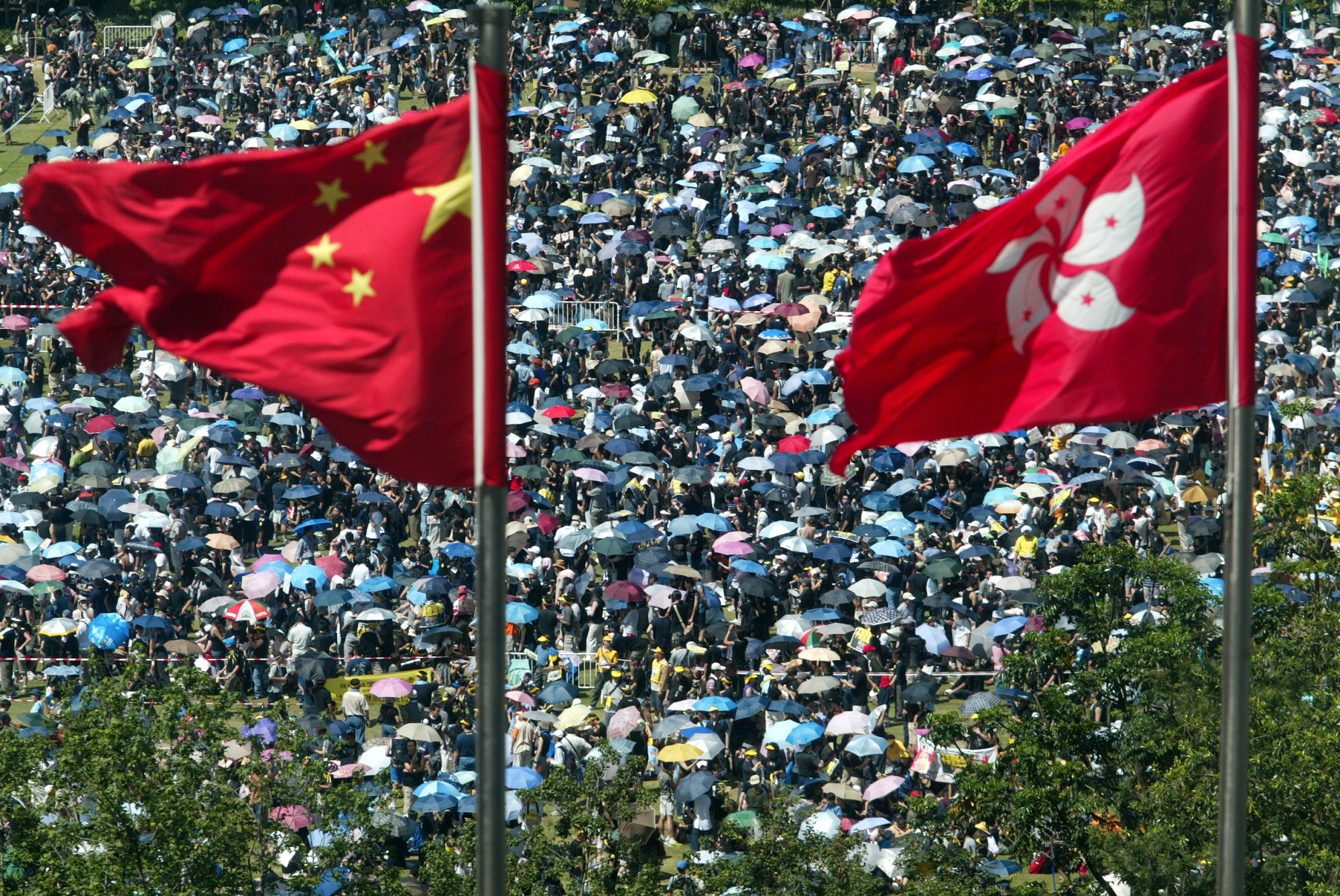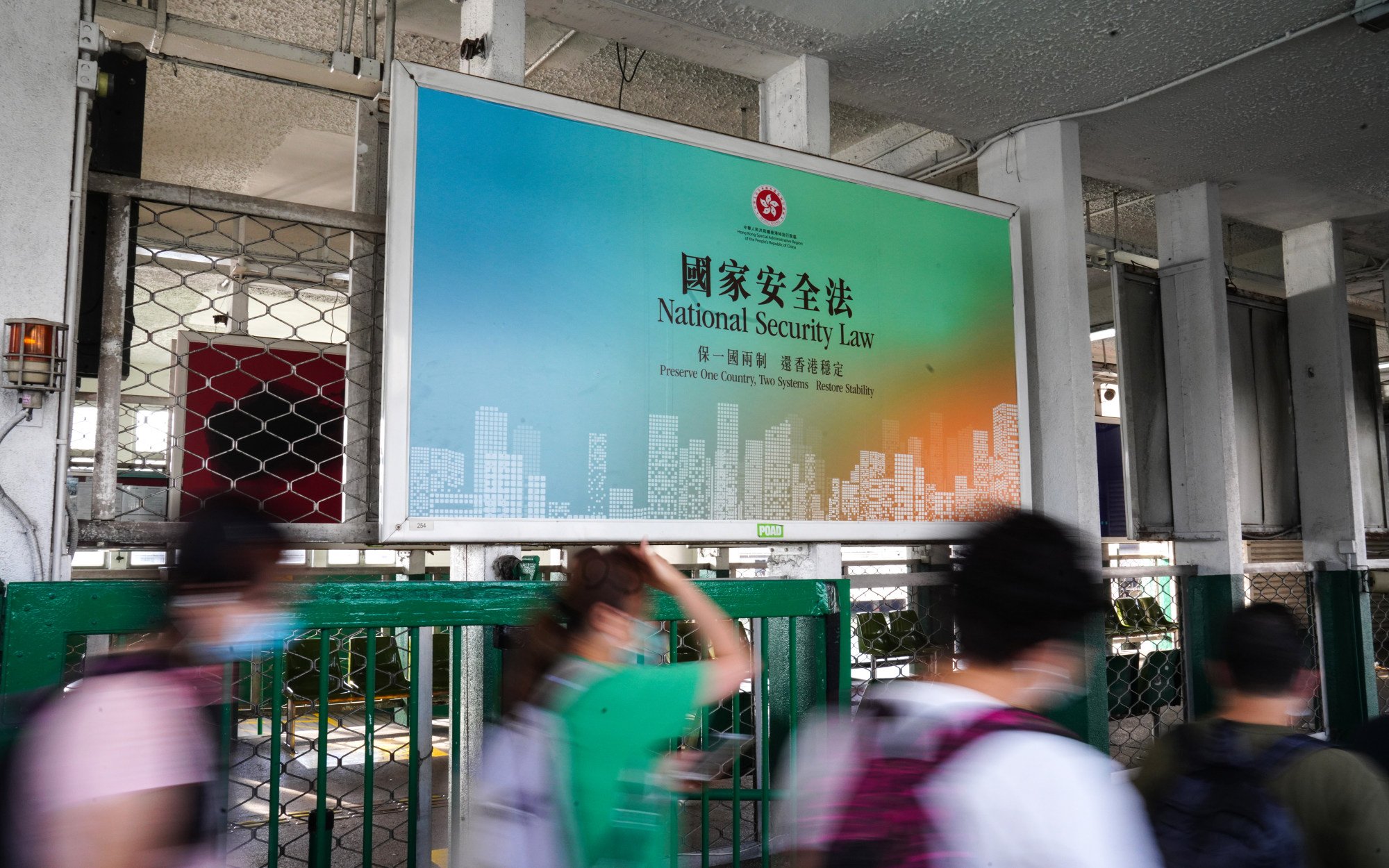Hong Kong’s Article 23 national security law ‘will not be applied retroactively’, minister says
[ad_1]
Hong Kong’s security chief has said local legislation on national security to satisfy Article 23 of the city’s mini-constitution will not have a retroactive effect, adding that outlining every provision of the bill for public discussion is not an efficient approach.
Secretary for Security Chris Tang Ping-keung was commenting on the scope of the Basic Law article, which stipulates that the city must enact legislation to ban treason, secession, sedition, subversion or theft of state secrets targeting Beijing and to prevent foreign actors from carrying out political activities in Hong Kong.
“There is generally no retroactive effect under common law,” he told a radio programme on Sunday.

When asked if Hong Kong would hand over complex and high-risk cases involving separatist activities in other locations to the central government, Tang referred to the national security law imposed on the city in 2020 to outlaw acts of secession, subversion, terrorism and collusion with foreign forces.
“The national security law has provided us with extraterritoriality … because many people engage in infiltration activities in other places that endanger national security.
“In some exceptional circumstances, including some very complex cases pertaining to external forces that our government can’t handle or effectively implement and some that involve grave risk, the national security law says they will be handled by the state,” he said.
Hong Kong will forge ahead with plans to pass Article 23: justice secretary
Hong Kong will forge ahead with plans to pass Article 23: justice secretary
But Tang said he believed these cases would be “sporadic”.
“I also don’t want these situations to happen,” he said. “Besides enforcing the national security law, we also hope it will have a deterrent effect,” he said.
Tang added he hoped all sectors of society would have a chance to express their opinions before the implementation of Article 23, but allowing the public to discuss every provision of the bill during a consultation may not be the most effective approach.
“Is it really efficient to let the public examine each of the provisions? I don’t think so,” he said. “We are not experts, we have to understand what the principles are, what needs to be regulated, then we hand it back to the experts to draft the law. I think this is the most efficient way and in the best interest of Hong Kong.”

Tang said details of a potential consultation were still being discussed.
“But the principle is clear, it has to be broad enough to allow everyone to have a chance to express their opinions,” he said.
In his latest policy address last month, Chief Executive John Lee Ka-chiu said authorities were “pressing ahead to draw up effective legislative options” and pledged to complete legislation within the next year to fulfil the government’s constitutional duty.
A massive street protest foiled the first attempt to implement the article in 2003 when more than 500,000 people marched from Causeway Bay to Central, forcing the government to mothball the bill several days later.
Hong Kong to define state secrets according to city’s needs, minister says
Hong Kong to define state secrets according to city’s needs, minister says
The Beijing-imposed national security law introduced in 2020 outlined four crimes – secession, subversion, terrorism, and collusion with foreign organisations – stipulating their specific composition and corresponding criminal liability.
Earlier this year, Tang on social media said that the 2003 demonstration was a “pilot trial” for external forces to foster opposition in the city and nudge Hong Kong towards a coloured revolution.
The security minister on Sunday said the government would inform the public about the necessity of Article 23, as the anti-government protests in 2019 had shown there were espionage activities in the city.
He added the United States and Britain had revealed plans in 2021 to step up intelligence collection in mainland China.
Commenting on a bipartisan bid by US congressmen in the House of Representatives and the Senate to sanction 49 Hong Kong officials, judges and prosecutors, Tang described the move as “bullying and gangsterism”, calling on the public to condemn such activities.
“This is exactly how triads behave – I just want to scare you into not doing something you should do,” he said. “It is perfectly legitimate for us to prosecute those people in breach of Hong Kong law in accordance with Hong Kong law. But these foreign politicians may be doing it for their own interests or to protect their lackeys in Hong Kong.”
Among those named in the bill are Secretary for Justice Paul Lam Ting-kwok, Commissioner of Police Raymond Siu Chak-yee and Chief Justice Andrew Cheung Kui-nung.
Tang added he was confident that the city’s prosecutors and legal professionals would “stand firm in their beliefs to defend our laws, judicial independence and freedom”.
[ad_2]
Source link





